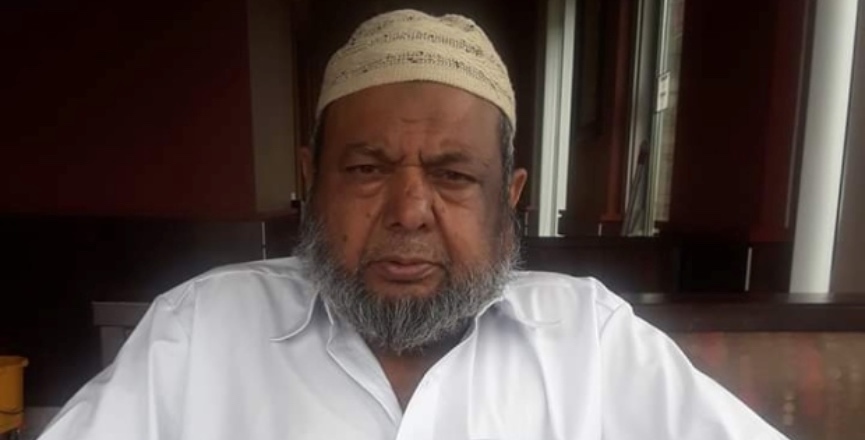“Wellness check” does not immediately evoke the sense of a looming threat or danger. But as more news stories globally emerge about the fatal outcome of these checks, at the hands of police, that might change.
Following the tragic death of Ejaz Choudry, 62, killed in his apartment during a wellness check on June 21, the Muslim Council of Peel is calling for an “independent inquiry” into the exact role police played in his death.
More specifically, the council demands that this inquiry be conducted “outside the role of the Special Investigations Unit (SIU),” the civilian body that, technically separate from police, investigates any incident in Ontario where police are responsible for the death of a civilian.
There remains uncertainty, however, as to how impartial the SIU actually is, especially after Ontario’s ombudsman published “Oversight Undermined” in 2011, a comprehensive report identifying and addressing biases that undermine fair investigations on the part of the SIU. The author of the report and then-Ontario ombudsman André Marin himself has stated: “There’s no doubt in my mind that the SIU investigation is one which is currently done through blue coloured glasses.”
I called the executive director of the Council Rabia Khedr to get a better understanding of the proposed independent inquiry. She told me it would be one completely separate from the SIU or any police-affiliated body, and undertaken instead by the Ontario government.
At the same time, the council is anticipating, albeit skeptically, the results of the ongoing SIU investigation into the death of Choudry. Khedr mentioned that the council has little faith in the SIU, given its seemingly preferential treatment of law-enforcement officers. The officer who shot and killed Choudry, who had schizophrenia and was in mental distress during the wellness check, has not been arrested.
It is hard to imagine that had a civilian done the same, they would be permitted the same freedom. My brief discussion with Kedhr gave me pause: Do we, as a society, take for granted that when police officers kill, they are “just doing their job”?
Whatever the results of the SIU investigation, the tragic death of Choudry is but another instance of why police should be defunded. Though not all is known about what happened inside his apartment when he was killed, one thing is certain: he should not have been on the receiving end of any violence whatsoever, let alone shot.
He was a vulnerable person. What he required was care and sensitivity, such as from mental crisis intervention teams, which Peel Region has but apparently were operating elsewhere at that time. They can effectively de-escalate situations where vulnerable persons, in distress, may be a danger to themselves or others. Such teams, such as the well-known CAHOOTS unit in Eugene, Oregon, are doing just this and so are non-violently able to cancel this danger.
What’s more, they, unlike in Toronto, are first responders to vulnerable people during wellness checks, even when a weapon might be involved (police generally arrive at the scene in cases involving weapons first). Their non-threatening presence, carrying no weapons themselves and working in civilian clothing, makes it more likely that vulnerable people will co-operate with them, avoiding the possibility that a situation will escalate — with harmful or fatal consequences.
Currently, the motion to defund the police in Toronto, put forward by city councillors Kristyn Wong-Tam and Josh Matlow, stresses — in its fifth recommendation — the need for a portion of the police budget to be reallocated to crisis intervention, so that trained health-care workers, similar to CAHOOTS, can de-escalate non-criminal situations where vulnerable persons are in mental distress.
This is promising and if implemented properly will not only save lives but promote trust and healthy relationships between community and those who respond to its vulnerable members with care, rather than force. Even the Centre for Addiction and Mental Health (CAMH), earlier this week, released a statement advocating for mental health workers to be first responders, defusing potentially violent situations.
Emphasizing this, the statement reads: “Mental Health is Health. This means that people experiencing a mental health crisis need health care. Police should not be the first responders when people are in crisis in the community. Police are not trained in crisis care and should not be expected to lead this important work.”
At the moment I am butting heads with a police officer friend of mine. Whenever I bring up the topic of defunding police, he is rather defensive, telling me I don’t know what I’m talking about. He did invite me, however, for a ride-along to see what police have to face daily, and I will take him up on the offer. Perhaps I will learn more about what he does and where police responsibly interact with vulnerable populations.
Still, I believe he fails to see what statistics and recent reports show, namely that police all too often do the opposite of what they are technically mandated to do: protect the vulnerable.
It is high time we change the current system that allows this to continue. Some of those in mental distress are, through no fault of their own, unable to stop themselves from acting dangerously or aggressively. The use of aggressive force and the presence of police won’t assist those experiencing such distress. A person in mental distress needs to know they will be ok, safe.
That’s how you save a life.
Paul Salvatori is a Toronto-based photojournalist and writer.
Image: Submitted



